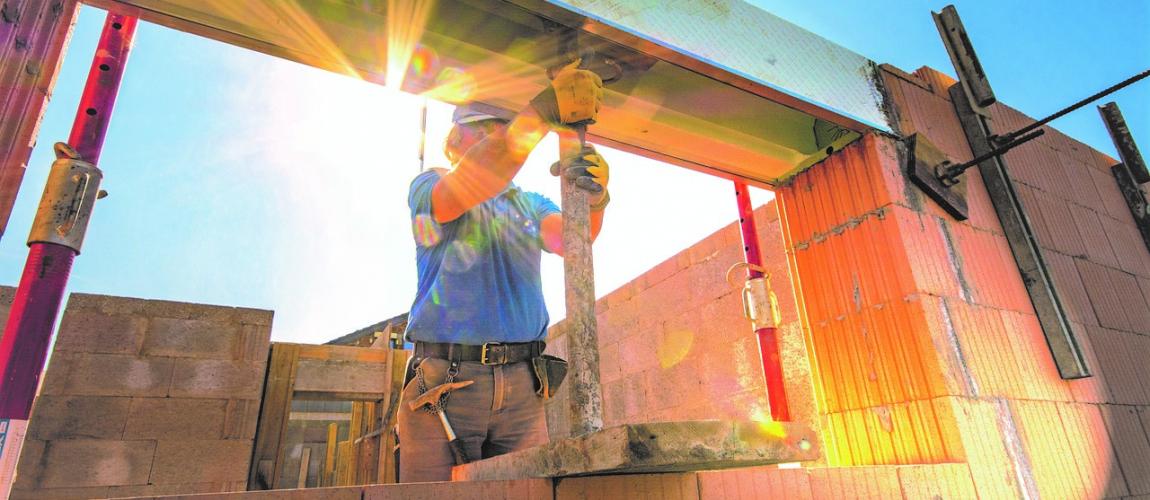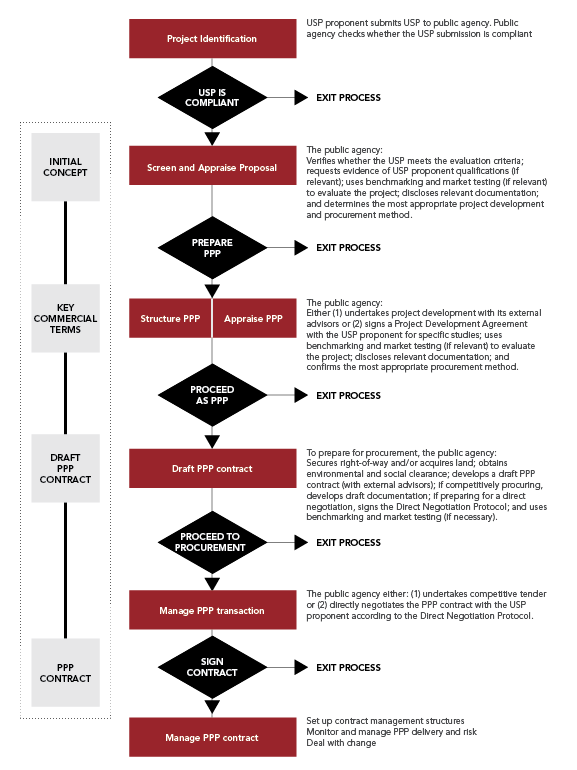Defining Clear Policy and Processes

Photo Credit: Image by Pixabay
The World Bank report on the Framework for Unsolicited Proposals (WB 2017d) discusses the need for a clear framework on USPs. Governments must first decide whether to allow USPs as part of their PPP program. This decision should be based on an informed understanding of the advantages and disadvantages of USPs. A government’s decision on USPs need not be permanent. However, the government’s position should be clear and well-publicized to ensure that: The effectiveness of a USP Policy will be influenced by the wider institutional and political environment for both privately and publicly initiated PPPs. Governments must ensure that the development of their USP Policy is accompanied with: The success of the USP Policy will be in part determined by the effectiveness of the PPP legal and policy framework. A USP Policy is not expected to replace PPP policies or procurement laws but rather complement them in areas that are specific to privately initiated PPPs. Governments are advised to rely on the standard PPP process for elements that are common to both publicly and privately initiated PPPs. Adopting a USP policy should be accompanied by an assessment of the effectiveness of the institutional structure that handles both publicly and privately initiated PPP projects. The institutional structure includes the government agencies involved in PPP initiation, preparation, implementation, and oversight. Each of these entities should have a clear role and mandate at each stage of the PPP process to avoid duplication of tasks and ensure that the necessary checks and balances are integrated into the institutional structure. The effectiveness of the USP policy will also depend on the capabilities and experience of the public officials responsible for handling USPs. Governments are therefore advised to assess the levels of experience of the relevant public officials prior to accepting USPs and, if necessary, devise strategies for increasing institutional capacity over time. The purpose of the USP policy is to ensure clarity, predictability, transparency, and accountability for both public agencies and private sector entities. Governments must decide how to incorporate the USP Policy in their existing legal framework. Governments may incorporate a USP policy in various legal instruments, including: Governments are advised to consider their country’s unique circumstances before defining their USP legal framework. Context-specific factors have a significant impact on the choice of USP policy features. These context-specific factors may include: There are multiple ways in which the government may define the parameters of USPs that it receives: These options are not mutually exclusive and may be combined within a USP policy. Clear processes for handling unsolicited proposals are important for transparency, helping build confidence among all stakeholders that projects developed from unsolicited proposals deliver value for money. Clear processes can also help incentivize private developers to invest resources in developing good-quality project proposals, and encourage potential competitors to engage in the bidding process. The World Bank report on the Framework for Unsolicited Proposals (WB 2017d) describes a well-defined process to assess, approve and bid out a project from an unsolicited proposal, as illustrated in USP Process Flow. USP Process Flow First, a private company submits an unsolicited proposal. A well-articulated submission framework helps to ensure that the USP meets the government’s requirements and is processed efficiently. It also provides guidance to USP proponents in developing quality proposals that comply with the public agency’s requirements. Then, the public agency evaluates the USP and determines whether to develop it in greater detail. A well-articulated USP evaluation process ensures that only projects that meet public objectives and basic feasibility criteria are considered for the project development stage. During the project development stage, the feasibility studies will be developed in more detail than the (preliminary) feasibility studies developed by the USP proponent as part of its USP submission. At the end of this stage, the public agency reassesses the project against the same evaluation criteria used during the evaluation stage. Based on the assessment, the public agency determines whether the project should enter the procurement stage. Governments will need to decide on the extent to which the USP proponent will be involved in this process. There are two main options regarding the role of the USP proponent in project development: During the procurement stage, the public agency prepares and undertakes the procurement process. An effective procurement process ensures that the PPP contract represents a fair market price and protects the interests of the government and society throughout the life of the project, including through a sustainable and robust risk allocation. A transparent and accountable procurement process also ensures stakeholder support and minimizes the likelihood of legal or political challenges to the project at a later stage. In most cases, a competitive tender will enable the government to achieve lower final project costs and generate greater value for money. However, some governments may choose to allow USP projects to be directly negotiated with the USP proponent under specific circumstances. Governments also need to determine if any incentive is given to the proponent. For further details on for the development of a USP policy and for the management of USPs, please refer to the World Bank report on the Framework for Unsolicited Proposals (WB 2017d).
Find in pdf at PPP Reference Guide - PPP Cycle or visit the PPP Online Reference Guide section to find out more.
Related Content
INTRODUCTION
Page Specific DisclaimerVisit the PPP Online Reference Guide section to find out more.
PPP BASICS: WHAT AND WHY
Page Specific DisclaimerVisit the PPP Online Reference Guide section to find out more.
Featured Section LinksESTABLISHING THE PPP FRAMEWORK
Page Specific DisclaimerVisit the PPP Online Reference Guide section to find out more.
PPP CYCLE
Page Specific DisclaimerVisit the PPP Online Reference Guide section to find out more.
Identifying PPP Projects
Type of ResourceAppraising Potential PPP Projects
Type of ResourceStructuring PPP Projects
Type of ResourceDesigning PPP Contracts
Type of ResourceManaging PPP Transactions
Type of ResourceManaging PPP Contracts
Type of ResourceDealing with Unsolicited Proposals
Type of ResourceKey References - PPP Cycle
Type of Resource